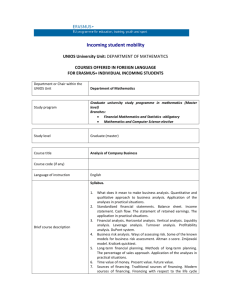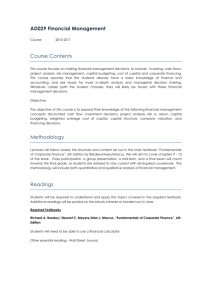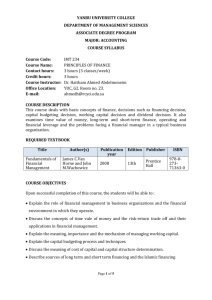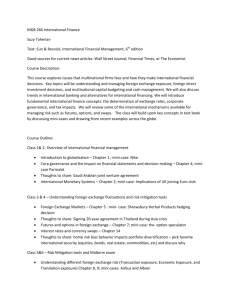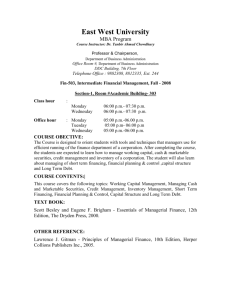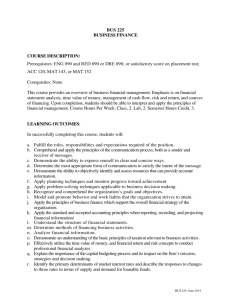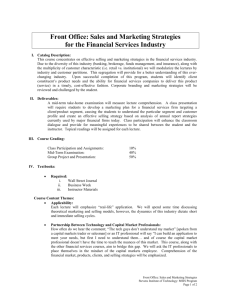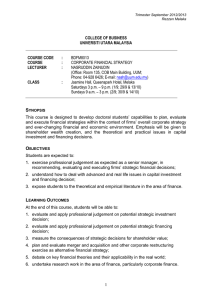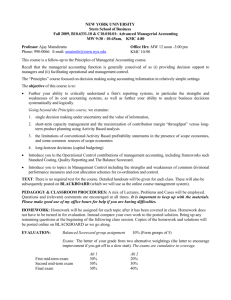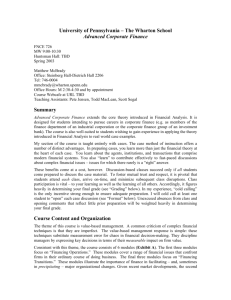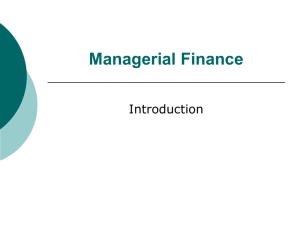COURSES OFFERED IN FOREIGN LANGUAGES
advertisement
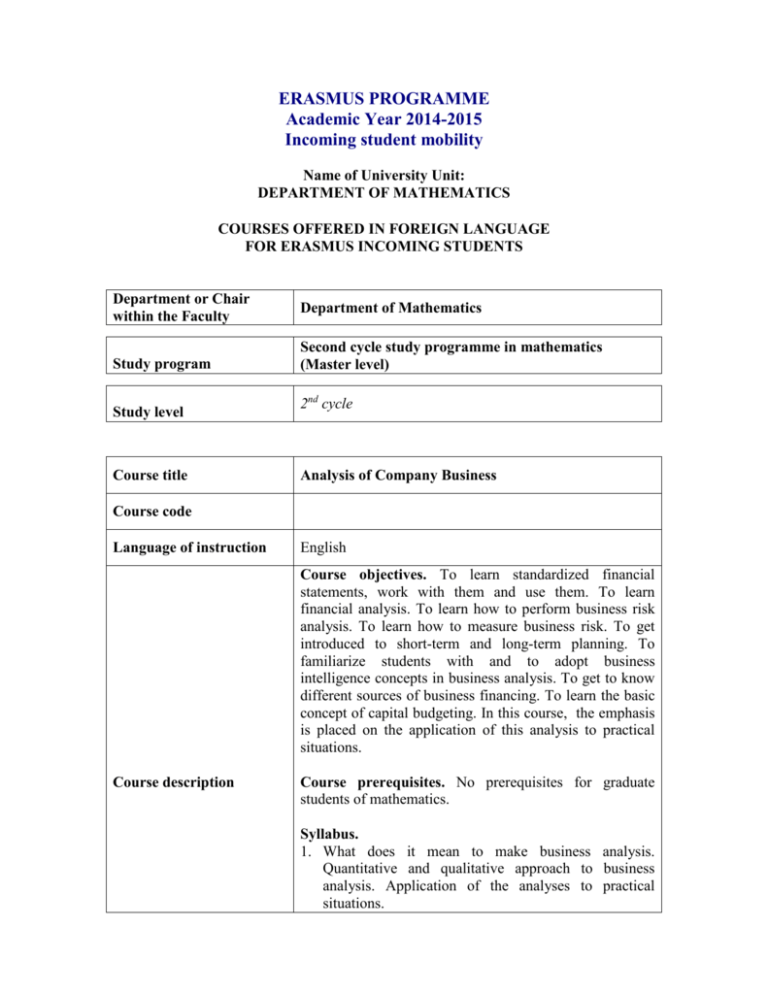
ERASMUS PROGRAMME Academic Year 2014-2015 Incoming student mobility Name of University Unit: DEPARTMENT OF MATHEMATICS COURSES OFFERED IN FOREIGN LANGUAGE FOR ERASMUS INCOMING STUDENTS Department or Chair within the Faculty Study program Study level Course title Department of Mathematics Second cycle study programme in mathematics (Master level) 2nd cycle Analysis of Company Business Course code Language of instruction English Course objectives. To learn standardized financial statements, work with them and use them. To learn financial analysis. To learn how to perform business risk analysis. To learn how to measure business risk. To get introduced to short-term and long-term planning. To familiarize students with and to adopt business intelligence concepts in business analysis. To get to know different sources of business financing. To learn the basic concept of capital budgeting. In this course, the emphasis is placed on the application of this analysis to practical situations. Course description Course prerequisites. No prerequisites for graduate students of mathematics. Syllabus. 1. What does it mean to make business analysis. Quantitative and qualitative approach to business analysis. Application of the analyses to practical situations. 2. Standardized financial statements. Balance sheet. Income statement. Cash flow. 3. Financial analysis. Horizontal analysis. Vertical analysis. Liquidity analysis. Leverage analysis. Turnover analysis. Profitability analysis. DuPont system. 4. Business risk analysis. Ways of assessing risk. Some of the known models for business risk assessment. Altman z-score. Zmijewski model. Kralicek quicktest. 5. Long-term financial planning. Methods of long-term planning. The percentage of sales approach. Application of the analyses to practical situations. 6. Time value of money. Present value. Future value. 7. Sources of financing. Traditional sources of financing. Modern sources of financing. Financing with respect to the life cycle stage. 8. Capital budgeting. Net present value. Discounted payback. The internal rate of return. The practice of capital budgeting. 9. Business intelligence. Business intelligence approach to business analysis. Using business intelligence for business analysis – AlphaBI. Application to practical situations. 10. Short-term finance and planning. The operating cycle and the cash cycle. The cash budget. Form of teaching Consultative teaching Form of assessment The final grade is formed as the average score based on the following grades: (i) activities in solving practical problems and tasks, (ii) homework, (iii) evaluation of 3 mid-term exams. Each mid-term exam consists of practical assignment and some theoretical issues. The last mid-term exam covers teaching materials from previous mid-term exams, and as such it represents the final exam of the course. Number of ECTS 4 Class hours per week 2+1+1 Minimum number of students Period of realization Summer semester Lecturer Dr. Nataša Šarlija, Associate Professor
